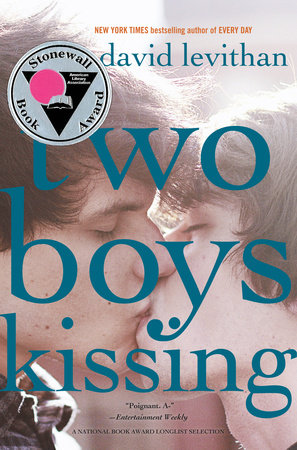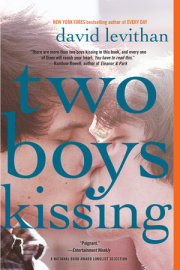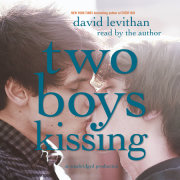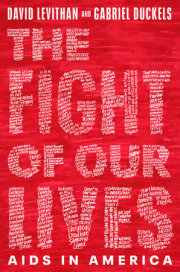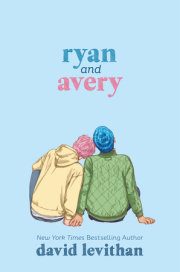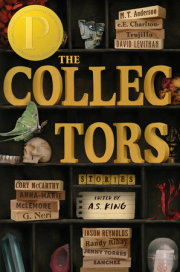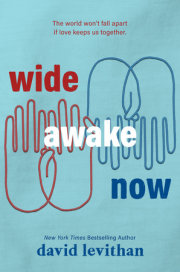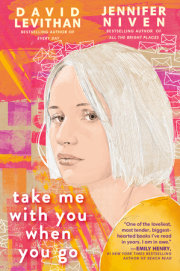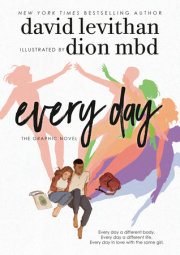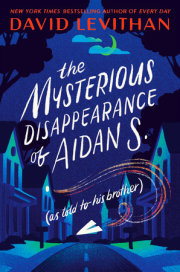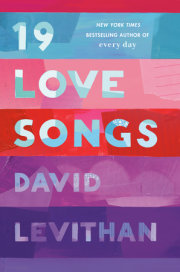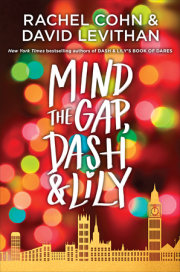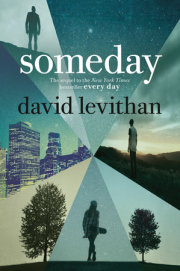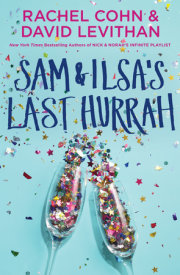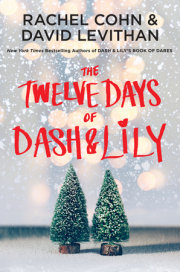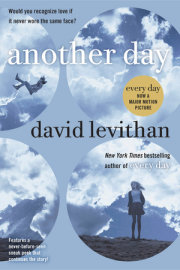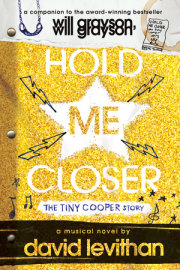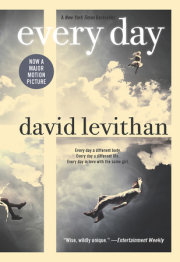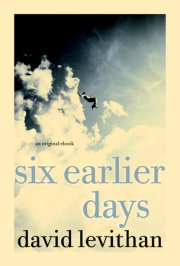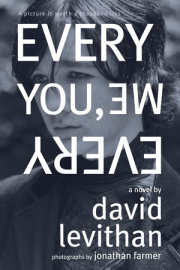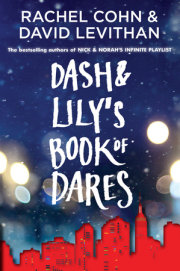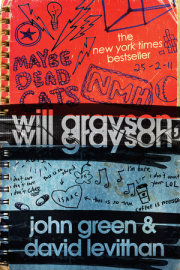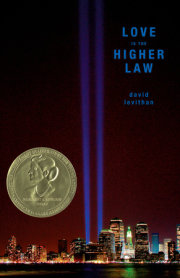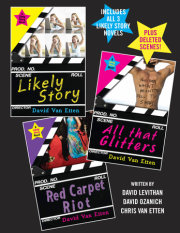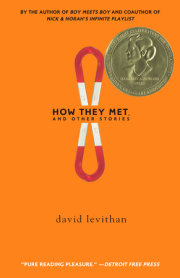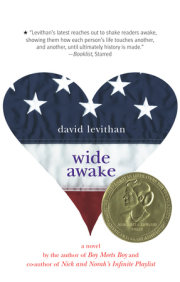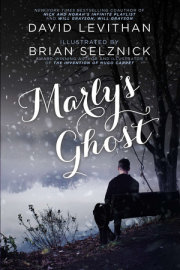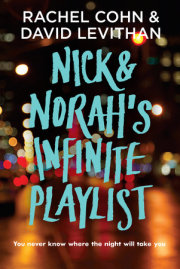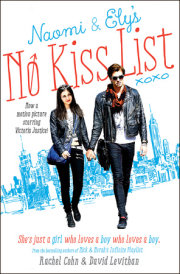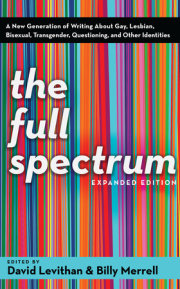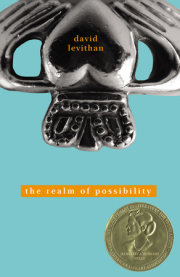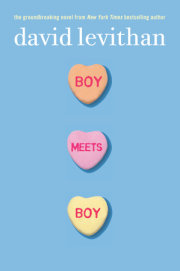You can't know what it is like for us now--you will always be one step behind.
Be thankful for that.
You can't know what it was like for us then--you will always be one step ahead.
Be thankful for that, too.
Trust us: There is a nearly perfect balance between the past and the future. As we become the distant past, you become a future few of us would have imagined.
It's hard to think of such things when you are busy dreaming or loving or screwing. The context falls away. We are a spirit-burden you carry, like that of your grandparents, or the friends from your childhood who at some point moved away. We try to make it as light a burden as possible. And at the same time, when we see you, we cannot help but think of ourselves. We were once the ones who were dreaming and loving and screwing. We were once the ones who were living, and then we were the ones who were dying. We sewed ourselves, a thread's width, into your history.
We were once like you, only our world wasn't like yours.
You have no idea how close to death you came. A generation or two earlier, you might be here with us.
We resent you. You astonish us.
It's 8:07 on a Friday night, and right now Neil Kim is thinking of us. He is fifteen, and he is walking over to his boyfriend Peter's house. They have been going out for a year, and Neil starts by thinking about how long this seems. From the beginning, everyone has been telling him it won't last. But now, even if it doesn't last forever, it feels like it has lasted long enough to be meaningful. Peter's parents treat Neil like a second son, and while Neil's own parents are still alternately confused and distressed, they haven't barred any of the doors.
Neil has two DVDs, two bottles of Diet Dr Pepper, cookie dough, and a book of poems in his backpack. This--and Peter--is all it takes for him to feel profoundly lucky. But luck, we've learned, is actually part of an invisible equation. Two blocks away from Peter's house, Neil gets a glimpse of this, and is struck by a feeling of deep, unnamed gratitude. He realizes that part of his good fortune is his place in history, and he thinks fleetingly of us, the ones who came before. We are not names or faces to him; we are an abstraction, a force. His gratitude is a rare thing--it is much more likely for a boy to feel thankful for the Diet Dr Pepper than he is to feel thankful for being healthy and alive, for being able to walk to his boyfriend's house at age fifteen without any doubt that this is the right thing to do.
He has no idea how beautiful he is as he walks up that path and rings that doorbell. He has no idea how beautiful the ordinary becomes once it disappears.
If you are a teenager now, it is unlikely that you knew us well. We are your shadow uncles, your angel godfathers, your mother's or your grandmother's best friend from college, the author of that book you found in the gay section of the library. We are characters in a Tony Kushner play, or names on a quilt that rarely gets taken out anymore. We are the ghosts of the remaining older generation. You know some of our songs.
We do not want to haunt you too somberly. We don't want our legacy to be gravitas. You wouldn't want to live your life like that, and you won't want to be remembered like that, either. Your mistake would be to find our commonality in our dying. The living part mattered more.
We taught you how to dance.
It's true. Look at Tariq Johnson on the dance floor. Seriously--look at him. Six feet three inches tall, one hundred eighty pounds, all of which can be converted by the right clothes and the right song into a mass of heedless joy. (The right hair helps, too.) He treats his body like it's made of fireworks, each one timed to the beat. Is he dancing alone or dancing with everyone in the room? Here's the secret: It doesn't matter. He traveled for two hours to get to the city, and when it's all over, it will take him over two hours to get home. But it's worth it. Freedom isn't just about voting and marrying and kissing on the street, although all of these things are important. Freedom is also about what you will allow yourself to do. We watch Tariq when he's sitting in Spanish class, sketching imaginary maps in his notebook. We watch Tariq when he's sitting in the cafeteria, stealing glances at older boys. We watch Tariq as he lays the clothes on his bed, creating the outline of the person he's going to be tonight. We spent years doing these things. And this was what we looked forward to, the thing that Tariq looks forward to. This liberation.
Music isn't much different now from what it was when we hit the dance floor. This means something. We found something universal. We bottled that desire, then released it into the airwaves. The sounds hit your body, and you move.
We are in those particles that send you. We are in that music.
Dance for us, Tariq.
Feel us there in your freedom.
It was an exquisite irony: Just when we stopped wanting to kill ourselves, we started to die. Just when we were feeling strength, it was taken from us.
This should not happen to you.
Adults can talk all they want about youth feeling invincible. Surely, some of us had that bravado. But there was also the dark inner voice telling us we were doomed. And then we were doomed. And then we weren't.
You should never feel doomed.
It is 8:43 on the same Friday night, and Cooper Riggs is nowhere. He's in his room, alone, and it feels like nowhere. He could be outside his room, surrounded by people, and it would still feel like nowhere. The world, in his eyes, is flat and dull. All sensation has been leaked from it, and instead its energy is running through the busy corridors of his mind, making angry, frustrated noise. He is sitting on his bed, and he is wrestling within himself, and ultimately the only thing he can think to do is go on the Internet, because life there is just as flat as real life, without the expectations of real life. He's only seventeen, but online he can be twenty-two, fifteen, twenty-seven. Whatever the other person wants him to be. He has fake profiles, fake photos, fake stats, and fake histories. The conversations are largely fake, too, full of flirtation he'll never deliver on, small sparks that will never turn to fire. He will not admit it, but he is actually looking for the surprise of something genuine. He opens seven sites at once, keeping his mind busy, tricking himself out of nowhere, even if it still feels like nowhere. He gets so lost in the search that nothing else seems to matter, and time becomes worthless, to be spent on worthless things.
We know that some of you are still scared. We know that some of you are still silent. Just because it's better now doesn't mean that it's always good.
Dreaming and loving and screwing. None of these are identities. Maybe when other people look at us, but not to ourselves. We are so much more complicated than that.
We wish we could offer you a creation myth, an exact reason why you are the way you are, why when you read this sentence, you will know it's about you. But we don't know how it began. We barely understood the time that we knew. We gather the things we learned, and they don't nearly add up to fill the space of a life.
You will miss the taste of Froot Loops.
You will miss the sound of traffic.
You will miss your back against his.
You will even miss him stealing the sheets.
Do not ignore these things.
Copyright © 2013 by David Levithan. All rights reserved. No part of this excerpt may be reproduced or reprinted without permission in writing from the publisher.

